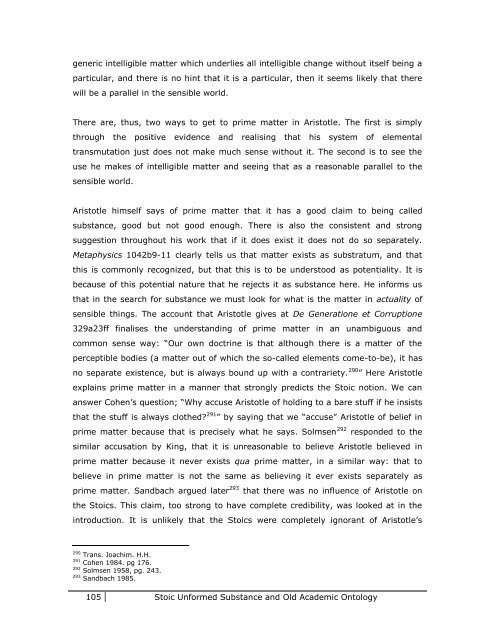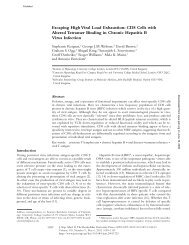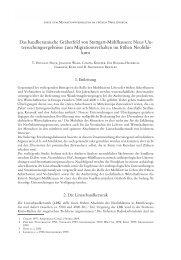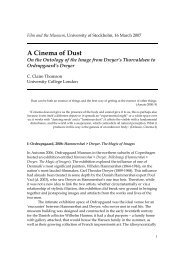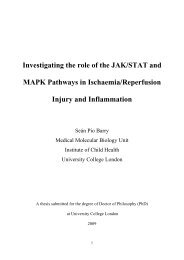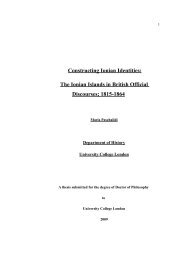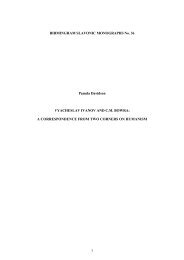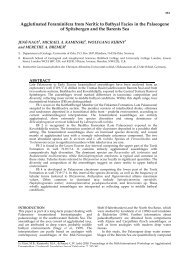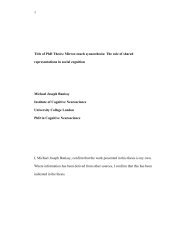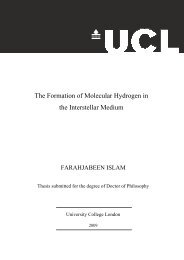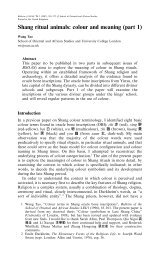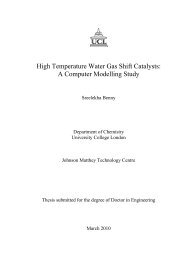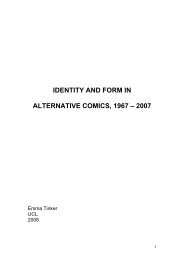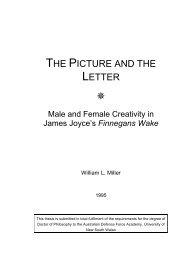Stoic unformed substance and old academic ontology - UCL Discovery
Stoic unformed substance and old academic ontology - UCL Discovery
Stoic unformed substance and old academic ontology - UCL Discovery
You also want an ePaper? Increase the reach of your titles
YUMPU automatically turns print PDFs into web optimized ePapers that Google loves.
generic intelligible matter which underlies all intelligible change without itself being a<br />
particular, <strong>and</strong> there is no hint that it is a particular, then it seems likely that there<br />
will be a parallel in the sensible world.<br />
There are, thus, two ways to get to prime matter in Aristotle. The first is simply<br />
through the positive evidence <strong>and</strong> realising that his system of elemental<br />
transmutation just does not make much sense without it. The second is to see the<br />
use he makes of intelligible matter <strong>and</strong> seeing that as a reasonable parallel to the<br />
sensible world.<br />
Aristotle himself says of prime matter that it has a good claim to being called<br />
<strong>substance</strong>, good but not good enough. There is also the consistent <strong>and</strong> strong<br />
suggestion throughout his work that if it does exist it does not do so separately.<br />
Metaphysics 1042b9-11 clearly tells us that matter exists as substratum, <strong>and</strong> that<br />
this is commonly recognized, but that this is to be understood as potentiality. It is<br />
because of this potential nature that he rejects it as <strong>substance</strong> here. He informs us<br />
that in the search for <strong>substance</strong> we must look for what is the matter in actuality of<br />
sensible things. The account that Aristotle gives at De Generatione et Corruptione<br />
329a23ff finalises the underst<strong>and</strong>ing of prime matter in an unambiguous <strong>and</strong><br />
common sense way: “Our own doctrine is that although there is a matter of the<br />
perceptible bodies (a matter out of which the so-called elements come-to-be), it has<br />
no separate existence, but is always bound up with a contrariety. 290 ” Here Aristotle<br />
explains prime matter in a manner that strongly predicts the <strong>Stoic</strong> notion. We can<br />
answer Cohen‟s question; “Why accuse Aristotle of h<strong>old</strong>ing to a bare stuff if he insists<br />
that the stuff is always clothed? 291 ” by saying that we “accuse” Aristotle of belief in<br />
prime matter because that is precisely what he says. Solmsen 292 responded to the<br />
similar accusation by King, that it is unreasonable to believe Aristotle believed in<br />
prime matter because it never exists qua prime matter, in a similar way: that to<br />
believe in prime matter is not the same as believing it ever exists separately as<br />
prime matter. S<strong>and</strong>bach argued later 293 that there was no influence of Aristotle on<br />
the <strong>Stoic</strong>s. This claim, too strong to have complete credibility, was looked at in the<br />
introduction. It is unlikely that the <strong>Stoic</strong>s were completely ignorant of Aristotle‟s<br />
290 Trans. Joachim. H.H.<br />
291 Cohen 1984. pg 176.<br />
292 Solmsen 1958, pg. 243.<br />
293 S<strong>and</strong>bach 1985.<br />
105 <strong>Stoic</strong> Unformed Substance <strong>and</strong> Old Academic Ontology


